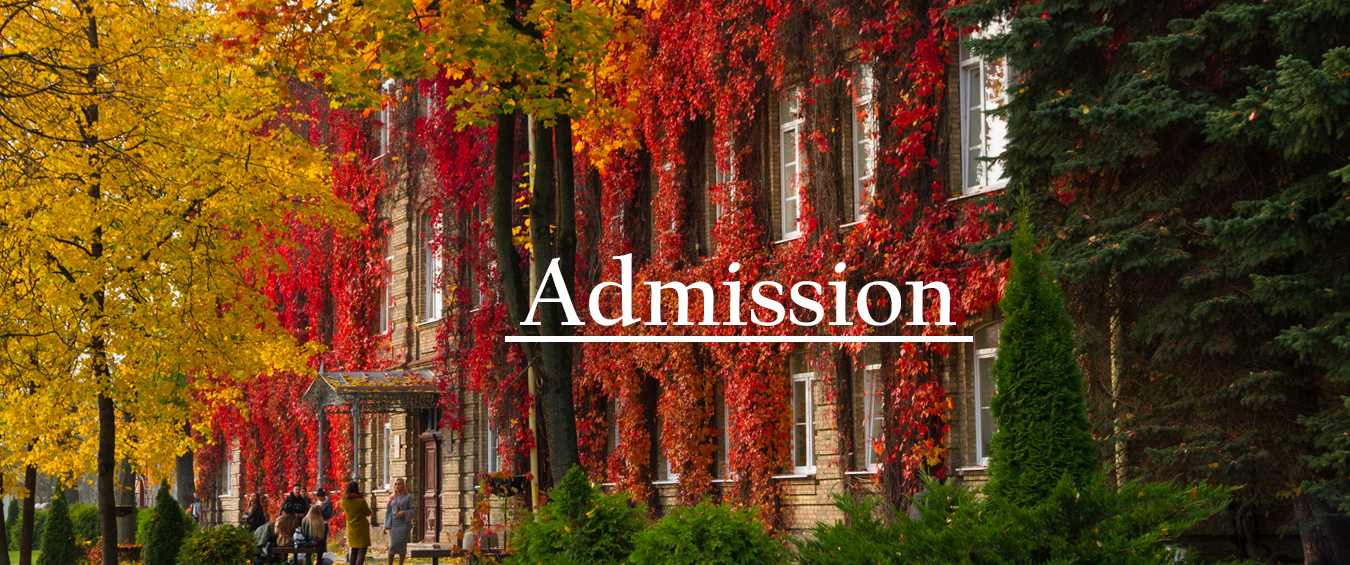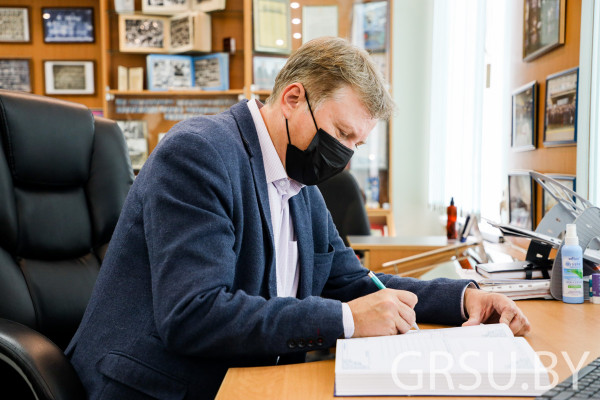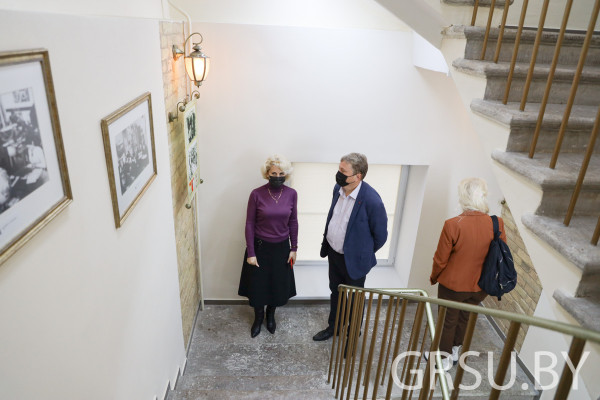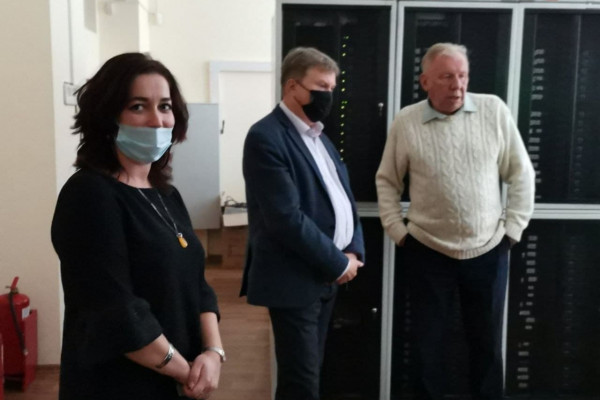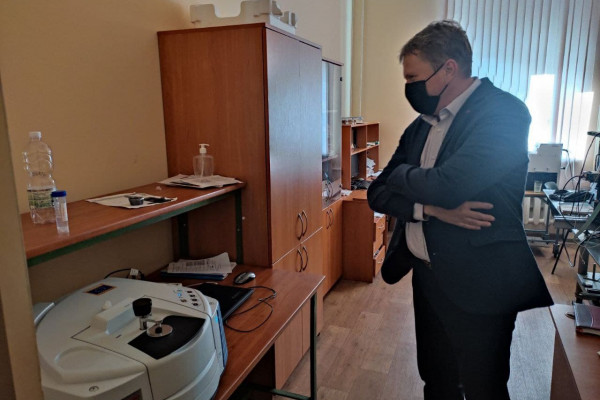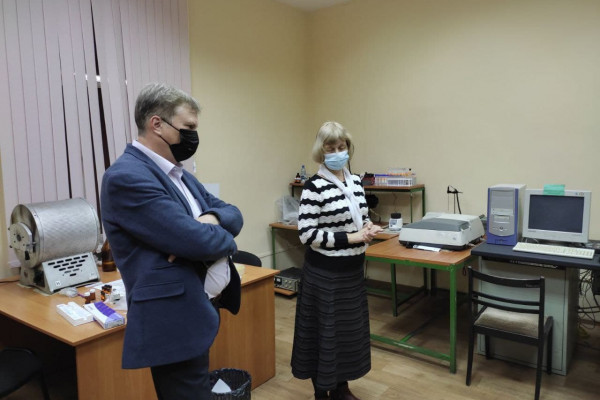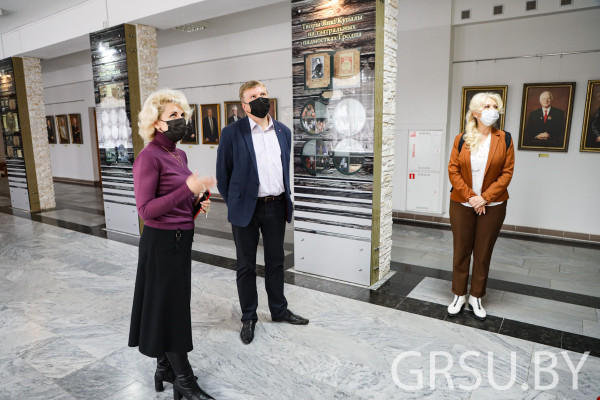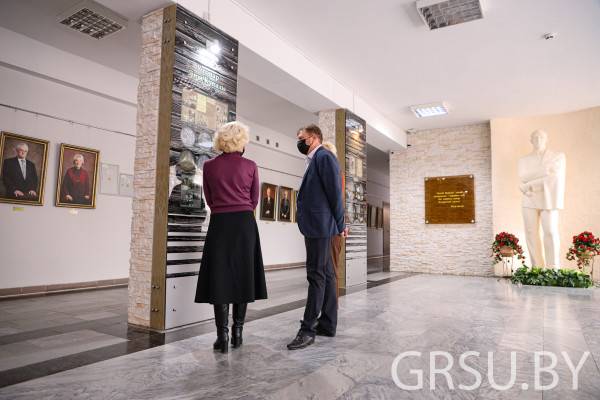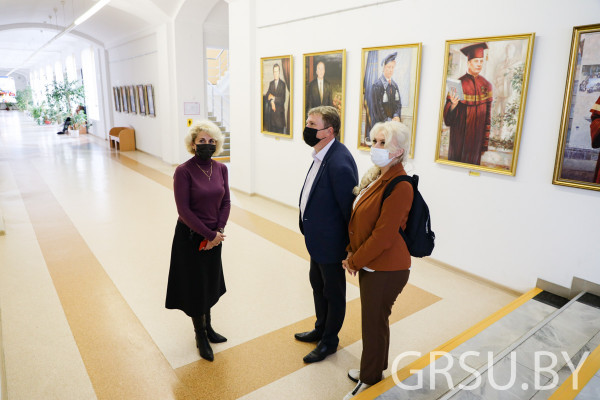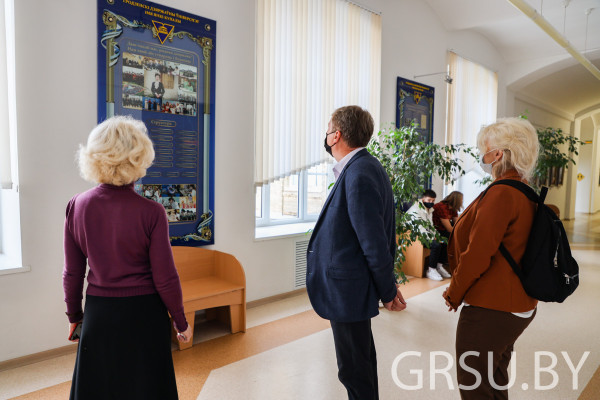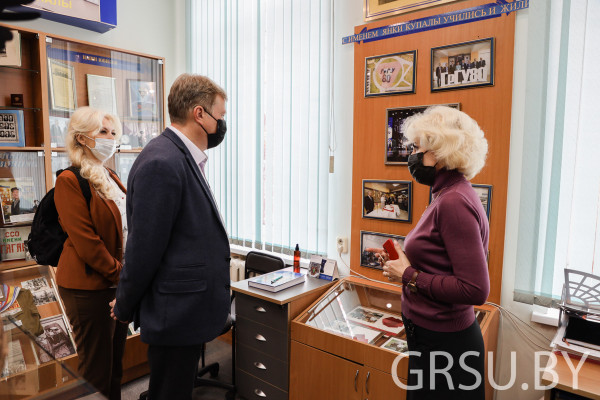
Yanka Kupala
State University of Grodno
Super User
Eliza Orzeszkowa and Liudwik Zamenhof: How the memory of outstanding figures is being preserved in Grodno
New tourist routes are being developed in Grodno. They will be dedicated to Eliza Orzeszkowa and Liudwik Zamenhof
Professor Vladimir Kosov from the Abai Kazakh National Pedagogical University visited Yanka Kupala State University of Grodno
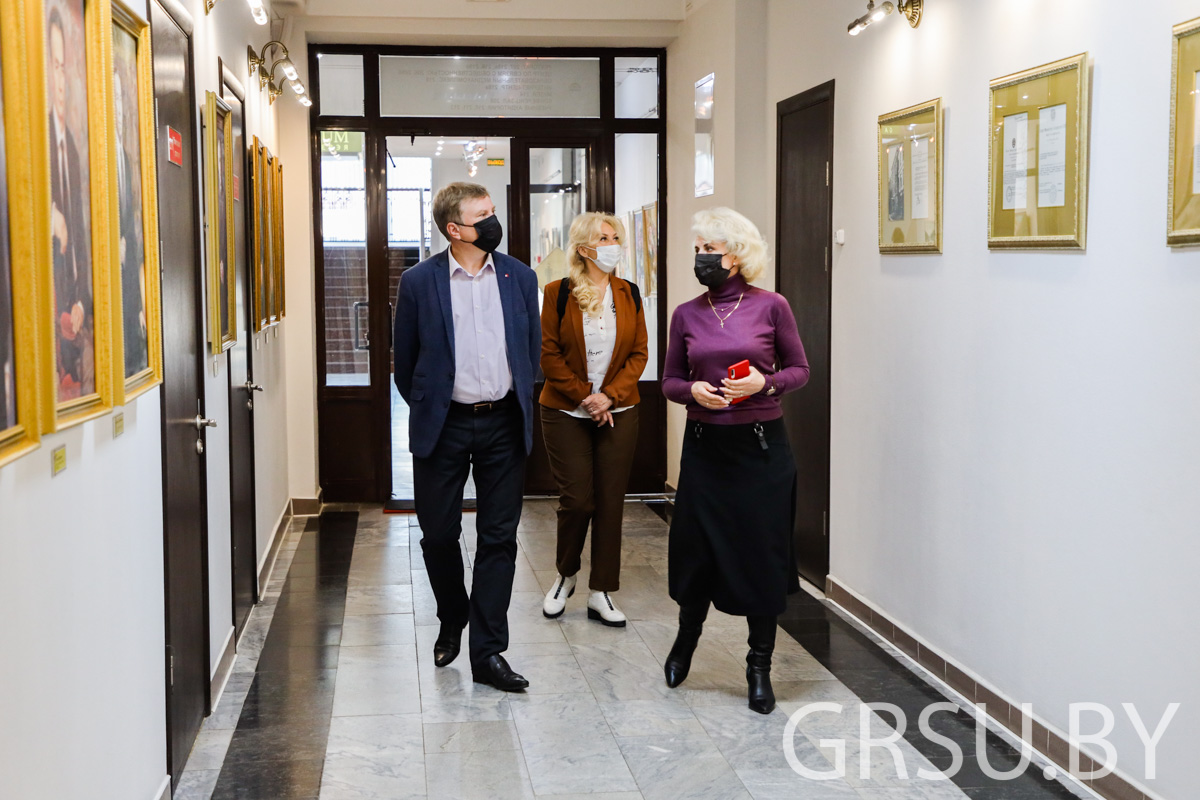
Doctor of Physical and Mathematical Sciences, Corresponding Member of the National Academy of Sciences of the Republic of Kazakhstan acquainted with the scientific potential of Kupala State University.
During the visit, Vladimir Kosov, professor of the Abai Kazakh National Pedagogical University, and Yury Bialykh, Vice-rector for Academic Affairs of Yanka Kupala State University of Grodno, discussed the prospects of cooperation between the institutions of higher education.
Vladimir Kosov also visited the Physico-Technical Faculty of Kupala University and familiarized himself with the activities of the research laboratories of molecular spectroscopy and nanostructure optics and radiation materials science. The staff members of the laboratories told about the scientific potential of the Physico-Technical Faculty, outlining the demand for scientific equipment in many higher education institutions and scientific organizations.
Yanka Kupala State University students from Uzbekistan early voting in presidential elections
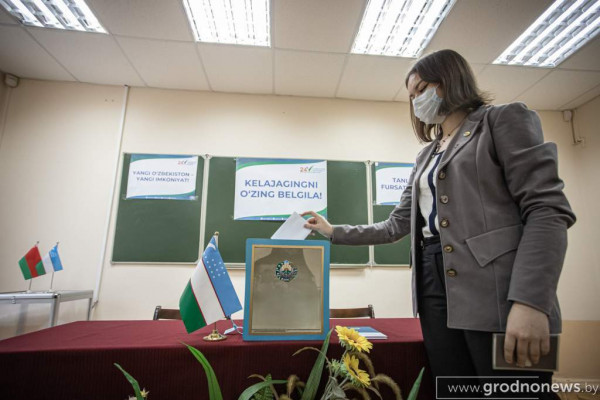
Early voting centres were set up across the country from 14 to 20 October. Students at Yanka Kupala State University of Grodno also had an opportunity to express their civic position.
Fifty students from Uzbekistan study at Kupala University. The adult students naturally exercised their right to vote in the elections. One of the first to do so was Ruslana Tolstosheeva, a third year student of the History of Communication and Tourism Department and coordinator of the World Youth Association of Uzbekistan in Grodno region. The girl said that the election is an indicator of concern about the future of their country.
Kupala students were glad that, being thousands of kilometres away from their homeland, they could take part in the most important event for each state.
Overall, more than 1,000 foreigners from more than 30 countries study at Yanka Kupala State University of Grodno. For each of them comfortable conditions of studies and accommodation are created.
Volunteers of Yanka Kupala State University of Grodno help in an animal shelter
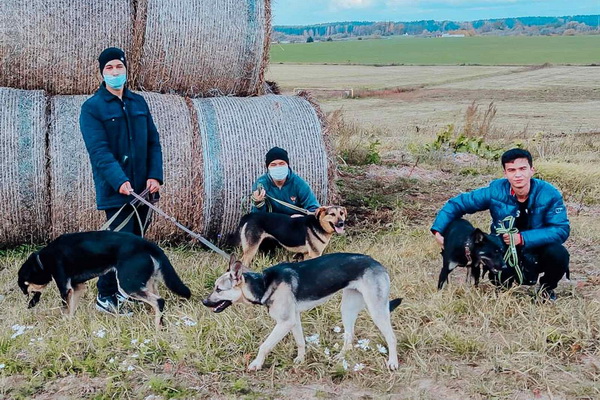
Members of the volunteer group of the Faculty of Law "Open Hearts" almost every weekend, and sometimes on weekdays, come to help in the shelter in the village of Lapenki. On their last visit they were joined by students from Uzbekistan.
They have been helping the homeless shelter in Lapenki for a long time now. They bring food, walk fluffy animals and generally provide help. It is important to show care to those who need it most. Kupala students enjoy spending time with animals. Communicating with their four-legged friends teaches them a lot and helps them see the world in a slightly different way, said Mariana Sokol, chairman of Open Hearts.
Students from Uzbekistan also joined the volunteer group: Bekhruza Kurbonova, Mirzo Ulugbek, Dauleta Agabaeva and Meylisa Orazgeldieva. The students gladly agreed to be part of the volunteer team.
Students of Yanka Kupala University took part in the forum of young researchers, political scientists and journalists "Eurasia Space 2021"
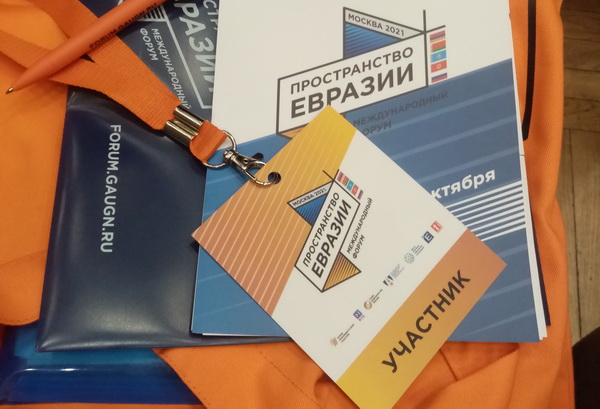
The forum was held in Moscow with the aim of developing integration ties between the EAEU member states.
Various cultural, educational and informative events took place during the forum, which was also attended by students of the Department of History, Communication and Tourism of Yanka Kupala State University of Grodno Alina Lukashevich and Alexey Larin, as well as a 4th year student of international law Anastasia Zhilyuk. The Kupala students visited the Museum of Cosmonautics at EANE, listened to lectures of Russian politicians, joined business games and master classes.
At the end of the Forum the participants were awarded certificates and memorable prizes. Forum of young researchers, political scientists and journalists "Eurasia Space 2021" is one of the main events held in order to develop integration processes in the EAEU and support youth initiatives.
The final conference within the PRINTeL project of the Erasmus + Programme was held at Yanka Kupala State University of Grodno
Infoday#3 of the MACICT project took place at Yanka Kupala State University of Grodno on September 13, 2021
Andrei Herman, Head of the Department of Electrical Engineering and Electronics, was trained under the "Knowledge transfer in Nuclear Safety Culture" program within the international project “RADIUM” of the Erasmus+ Programme

Vladimir Kosov, Professor of the Abai Kazakh National Pedagogical University visited Yanka Kupala State University of Grodno
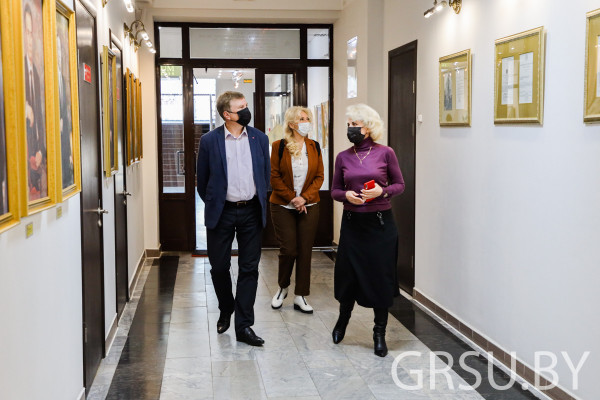
Vladimir Kosov, Doctor of Physical and Mathematical Sciences, Corresponding Member of the National Academy of Sciences of the Republic of Kazakhstan got acquainted with the scientific potential of Yanka Kupala State University of Grodno.
During the visit, a meeting between Vladimir Kosov, Professor of the Abai Kazakh National Pedagogical University and Yuri Belykh, Vice-Rector for Academic Affairs at Yanka Kupala State University of Grodno, was held. During the meeting prospects of cooperation between higher education institutions were discussed.
Vladimir Kosov also visited the Faculty of Physics and Technology of Yanka Kupala State University of Grodno and got acquainted with the activities of the research laboratories of molecular-level spectroscopy, optics of nanostructures and radiation material science. Laboratory staff told about the scientific potential of the Faculty of Physics and Technology, indicating the demand for scientific equipment by the teams of many institutions of higher education and scientific organizations.
